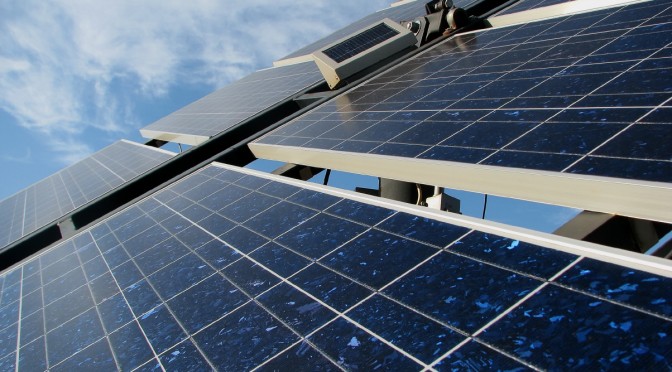China’s Ministry of Commerce said Friday that protectionist measures will harm the European solar energy industry and the two sides should resolve the dispute through negotiations.
The move came after a report revealed that Germany’s SolarWorld and other European solar panel makers filed a complaint this week seeking import tariffs on Chinese-made products.
The ministry has taken note of relevant reports and is verifying the information, said an official with the ministry.
“Thanks to low prices of raw materials and technological progress, Chinese solar energy products are more price competitive than European Union (EU) ones. That’s not dumping, as accused by some European companies,” the official said.
The import price of polysilicon — the major material for solar photovoltaic panels — has fallen to less than $30 per kilogram from nearly $300 in 2008, according to her.
Meanwhile, Chinese enterprises have invested heavily in improving technology and scaling up production, she added.
“Dumping allegations are groundless,” the official said on condition of anonymity.
She noted that Chinese enterprises only have advantages on the production side and they have to import most of the raw materials, equipment and manufacturing technologies from the EU and the United States.
China’s solar industry not only contributes to fueling EU exports of materials and equipment, but also helps create many job opportunities in the debt-ridden zone, she said.
The EU solar industry provides over 300,000 jobs for local people, and more than 80 percent of employees work in upstream and downstream industries, including raw material supplies, equipment manufacturing and system design, according to previous reports.
“The two sides should resolve the dispute through negotiations in order to maintain a healthy and stable industry environment. Amid global economic uncertainties, a stable free trade environment guarantees common development of solar photovoltaic industries on both sides,” she said.
Her comments came as the latest salvo in a battle between China and the EU over the solar product trade.
Chinese experts on Friday warned of a possible trade war if the EU imposes anti-dumping tariffs on Chinese-made solar products.
“No one will be a winner in a trade war. Both China and the EU should work to avoid it,” said Meng Xiangan, deputy director of the China Renewable Energy Society.
The country’s four major solar panel makers — Yingli, Suntech, Trina and Canadian Solar — issued a joint statement Thursday rejecting allegations that they have received illegal subsidies and dumped solar products in Europe and urging the government to take “necessary measures to protect our legitimate rights and interests.”
“The EU should be very clear that any kind of limit on market liberalization may destroy the balanced development of the photovoltaic industry, hinder energy reform and undermine global efforts to fulfill long-term energy-saving and emissions-reduction goals,” the statement said.
SolarWorld spearheaded a similar initiative in the US, leading the country to impose duties of about 31 percent on solar panel imports from China in May.
In response, China launched investigations into imported US solar-grade polysilicon last week.
China will likely initiate anti-dumping and anti-subsidy probes on EU-imported polysilicon if the EU decides to penalize Chinese solar companies, Meng said.
Chinese experts and entrepreneurs denied that the Chinese government has provided any illegal subsidies to its own manufacturers, saying many US and EU companies, as well as global industry associations, have agreed that SolarWorld filed the complaint primarily to ensure its own commercial interests and its allegations were groundless.
Many overseas economic organizations and industry groups have voiced opposition to imposing duties on Chinese-made solar products.
“Like a crazed agent provocateur, SolarWorld is fueling global solar industry infighting for its own selfish interests. On behalf of tens of thousands of US solar workers, we are very disheartened by SolarWorld’s unnecessary and destructive actions and urge the EU to reject their petition,” said the Coalition for Affordable Solar Energy (CASE) in an email interview with Xinhua.
The CASE is a coalition of American solar companies representing 97 to 98 percent of jobs in the US solar industry.
On Thursday, the Greater Phoenix Economic Council (GPEC) announced that it has filed a formal letter of protest to the US Department of Commerce and the International Trade Commission against tariffs on Chinese photovoltaic cells and modules.
As the premier economic development group for the Greater Phoenix, Arizona area, GPEC said a solar tariff of 50 percent will result in the loss of 14,877 to 43,178 jobs by 2014.
The tariffs will not only force solar companies to alter their business models, but also make future Chinese investment in Arizona more challenging, according to GPEC President and Chief Executive Officer Barry Broome.


